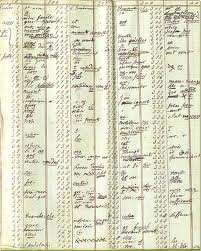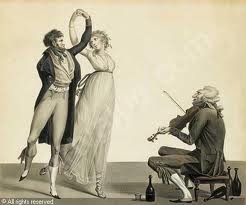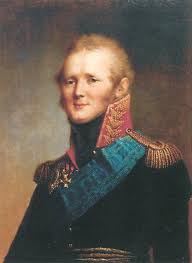 But there was this rather insightful comment about Turner’s study included in the programme notes, which encapsulated my own thinking about writing, but also set for me a new and ever-rising bar against which I must measure my work, and it was this–that he believed “the all-important lesson that artists were meant to aspire to greatness by copying and trying to rival those masters who had come before…”
But there was this rather insightful comment about Turner’s study included in the programme notes, which encapsulated my own thinking about writing, but also set for me a new and ever-rising bar against which I must measure my work, and it was this–that he believed “the all-important lesson that artists were meant to aspire to greatness by copying and trying to rival those masters who had come before…”
And it is in the spirit of that, that I bring this credo before you…I wrote it some time ago, yes, but to me today it seems truer than ever…It is a celebration of and a homage to the power of language.
Or, put another way–I believe poetry can teach you everything you need to know about writing.
We live in an age where there is this relentless drive to reduce everything to what is seen as its lean, mean, no-frills, efficient essence. And everything else is viewed as non-essential. Whether it’s extra letters in texting (why write ‘you’ when ‘u’ is so much quicker, easier and cheaper?) or the literary fondness for throwing out every adjective and adverb with the insistence that one only needs nouns and verbs, a few articles and the occasional pronoun.
Many people credit Ernest Hemingway with this stripped down literary approach, but I rather think Albert Camus is the true font of this school of writing. Still, today, we find novels which are little more than extended screenplays–though without the skill and talent of the fine actors to breathe life and emotional depth into them. These, I dare say, are meant to go with our minimalist kitchens, houses and gardens.
But, for me, at least in language, this minimalism ignores and discounts the many diamond facets of language’s impact. Because language isn’t just about a word’s definition.
Every single word in our glorious English language is so more than that. Every single word has sound, it has the length of its vowels and hence it has rhythm. It carries with it centuries of connotation too. And history. It even has appearance on the page. And all of these aspects, but particularly those first, are aspects which hit a reader viscerally, hence they are utterly vital to understand and employ. Though, of course, all of these aspects are essential and should not ever be discounted. But it’s these qualities combined that mean that ‘u’ is not a true substitute for ‘you’. ‘Look’ is not the same, will never be the same, as ‘ogle’.

Think about it. Words have drive. Or they can convey lassitude. They have assonance and dissonance. They can be combined alliteratively so that the reader is quite simply swept away and, like the indrawing of Scylla and Charybdis, one cannot resist the strength and powerful motion of them. And when we go to write our prose, we need to be aware of these various aspects of language, we need to engage with them, cherish them, love them, use them. And let them use us.
Now regardless of one’s view on Puritanism, on John Milton’s politics, religious views and piety, his views on women, or his even taste in clothes, this fellow could write. He had a sense of assonance and alliteration which few have ever rivalled. And with those tools, he gives his poetry such a sense of action and motion, that there’s no keeping up with him. He takes what we might simplistically call the action verbs and he turns them into superheroes. To be sure, my favourite is the famous:
“…Him, the Almighty Power
Hurled headlong flaming from th’ ethereal sky,
With hideous ruin and combustion, down
To bottomless perdition, there to dwell
In adamantine chains and penal fire,
Who durst defy th’ Omnipotent to arms.”
Just listen to that. You can’t help but feel it. You can’t help but respond. He takes that already strong verb, hurl, and through combining it alliteratively with Him, headlong, th’ethereal, and hideous, through the assonance of those vowels he creates a thunderbolt of language.
You can’t help but be driven along with it. And that is the power of the English language. This is the bar against which we should be measuring ourselves.
Though if you prefer, you can have Camus’ version: “God threw him out. Today. Perhaps yesterday. I don’t know.”
Another fellow who had it right is obviously William Shakespeare. And here, let me turn your attention to his ability to convey everything about a character through that individual’s speech. Take Hotspur in Henry IV, Part I. Now as we know, Shakespeare often delineated class by using prose for the lesser mortals, and blank verse for the aristos–which is a fairly straightforward device.
But when he gets to Hotspur, he excels himself. Because Henry Percy is a hot-blooded, hot-headed man of action. So Shakespeare writes him thus. When the others, the courtiers, are dithering and considering and pondering and soliloquising (all Latinate roots on those words, please notice) over the plot to take the throne from Henry IV, note how Shakespeare writes Hotspur as basically bursting out of his doublet with vim and swashbuckling strength of purpose:
“…Say you so, say you so? I say
unto you again, you are a shallow cowardly hind, and
you lie. What a lack-brain is this! By the Lord,
our plot is a good plot as ever was laid; our
friends true and constant: a good plot, good
friends, and full of expectation; an excellent plot,
very good friends…”
Out of the fifty-eight words in that passage, all but nine are monosyllables.
Not only that, but in this passage Shakespeare restricts his vocabulary almost entirely to Anglo-Saxon derivations, which to an Anglo-Saxon audience, are words that are understood without a thought process–these words are learned from infancy. We know what they mean and they hit us–literally punch us–in the gut.
(Winston Churchill was aware of this and used it to great effect when he wrote such lines as “blood, sweat, toil and tears…”)
And really, the above passage has so much drive with the staccato rhythm, so much emphasis, that it becomes nigh impossible to speak these lines without speeding up, without having those words tumbling out of the mouth. Try it. And in that, you now have  Hotspur’s character–he speaks as his name is. And in him, Shakespeare demonstrates just how great a master of language he is.
Hotspur’s character–he speaks as his name is. And in him, Shakespeare demonstrates just how great a master of language he is.
But Shakespeare also had another great knack which may be worth mentioning, and that was using the same word in its various shades of meaning, using one word, often as noun and verb, mirroring itself within the lines of his sonnets. So he’s playing with sound and meaning all at once. And always to astonishingly good effect, though perhaps never to such extent as in Sonnet 43:
“Then thou, whose shadow shadows doth make bright,
How would thy shadow’s form form happy show
To the clear day with thy much clearer light,
When to unseeing eyes thy shade shines so!”
And I always do think that if one can learn to write a sonnet, and write one well, then one can write anything. And well. For the sonnet form, with its demanding scheme of iambic pentameter and fourteen lines, demands such a disciplined skill, such a learning of the inherent rhythm of the language, such a mastery of the tools and craft of writing, that if you can say what you need to say in that format, well, then…you will have learned to listen and to write and to control your art. And in turn be controlled by it.
And with that, may I turn your attention to another dear friend, and a contemporary of Shakespeare, John Donne–not just a great philosopher, not just a great lover and dean of St. Paul’s, all in one lifetime, but also a great, great poet. When I think of him, and what I might say about him, frankly, my mind becomes blank. Because he is, quite simply, great. And I remain, though I read him often, in a state of awe. And there is only one reason why he is not included on every syllabus of English literature, and that is that we have become afraid of true greatness. Or perhaps of our own diminution in the face of it.
Because if you have any wish to ever write about love, the kind that is all-consuming or that which is platonic, lust, something between all of the above, you must look to him. For no one else in any language has ever had the courage or honesty or genius to write about it so. To write so close to the bone, that one can feel the ebbing of his blood.
Whether he is writing of grief: “Language thou art too narrow, and too weak/To ease us now; great sorrow cannot speak…Sad hearts, the less they seem, the more they are…”
Or love:
“I scarce believe my love to be so pure
As I had thought it was,
Because it doth endure
Vicissitude, and season, as the grass ;
Methinks I lied all winter, when I swore
My love was infinite, if spring make it more.”
Or the physical embrace of love: “Licence my roving hands, and let them go
Before, behind, between, above, below…”
Or his most perfect, most sesqui-superlative, The Sunne Rising:
BUSY old fool, unruly Sun,
Why dost thou thus,
Through windows, and through curtains, call on us ?
Must to thy motions lovers’ seasons run ?
Saucy pedantic wretch, go chide
Late school-boys and sour prentices,
Go tell court-huntsmen that the king will ride,
Call country ants to harvest offices ;
Love, all alike, no season knows nor clime,
Nor hours, days, months, which are the rags of time.
Thy beams so reverend, and strong
Why shouldst thou think ?
I could eclipse and cloud them with a wink,
But that I would not lose her sight so long.
If her eyes have not blinded thine,
Look, and to-morrow late tell me,
Whether both th’ Indias of spice and mine
Be where thou left’st them, or lie here with me.
Ask for those kings whom thou saw’st yesterday,
And thou shalt hear, “All here in one bed lay.”
“She’s all states, and all princes I ;
Nothing else is ;
Princes do but play us ; compared to this,
All honour’s mimic, all wealth alchemy.
Thou, Sun, art half as happy as we,
In that the world’s contracted thus ;
Thine age asks ease, and since thy duties be
To warm the world, that’s done in warming us.
Shine here to us, and thou art everywhere ;
This bed thy center is, these walls thy sphere.”
Imagine that. “Nothing else is.” Those words conjure up a love so transcendent that one almost shudders and fears for its beauty, strength and power. They reduce all things to mere dust before this so vital and consuming a force. And it is by contrasting the somewhat flowery language of all that has gone before–the lassitudinous complaint of being woken from after-love–with this stark pronouncement that the emphasis is doubly given to these words: ”Nothing else is.”
You wish to write of love, read John Donne, he will teach you how. He will teach you what to feel, how to listen to it and how to wield the knife of your pen so close to your own heart that you will write greatly.
For always, always his poetry demands that we listen, feel the heartbeat of it, of him, rest our cheek against the beauty of his language, his thought, his effervescent love of language and rhythm and sound and let them seep, osmosis-like into our emotional bloodstream and transform us. He engages our minds and our hearts so that we will never, as writers, shy away from that embrace of passion.
So, I believe, we must begin with poetry.
We must begin the journey the ancient Greeks knew through the hypnotising power of Homer’s formulaic poetry of war and nostalgia. We must listen. Lean our faces close against the warmth and power and grace of the words. Or feel their cruel thrusts of pain.
Take them into our mouths, test them, try them as wine, hold them upon the tongue. Taste and see, they are good. Rejoice in them. Embrace and use them well and let them embrace us and use us for their part. And let the poets who used this, our great and glorious English language, who understood just how powerful and intimate and utterly beautiful it could be, guide the way.
Slainte!






















